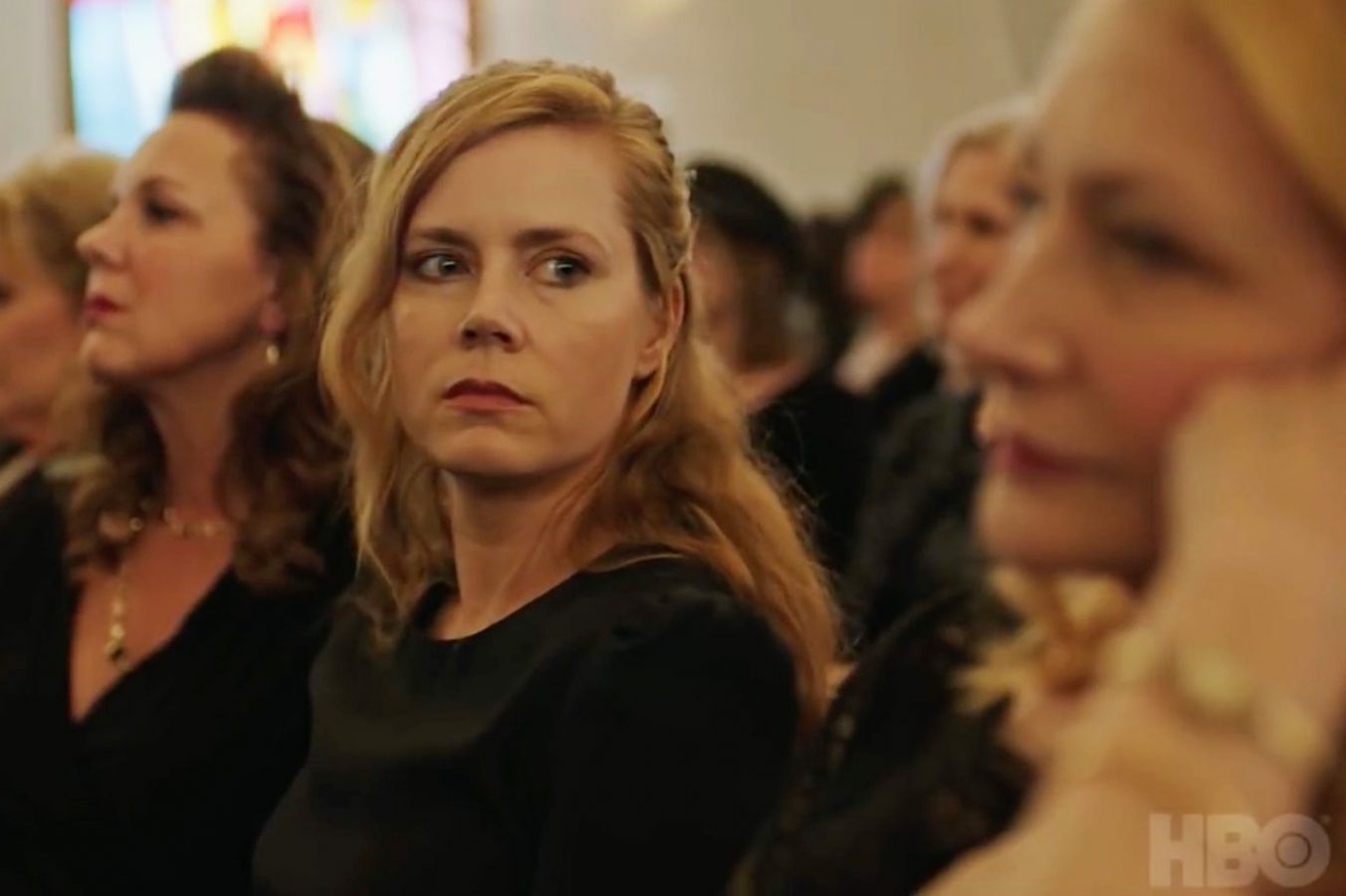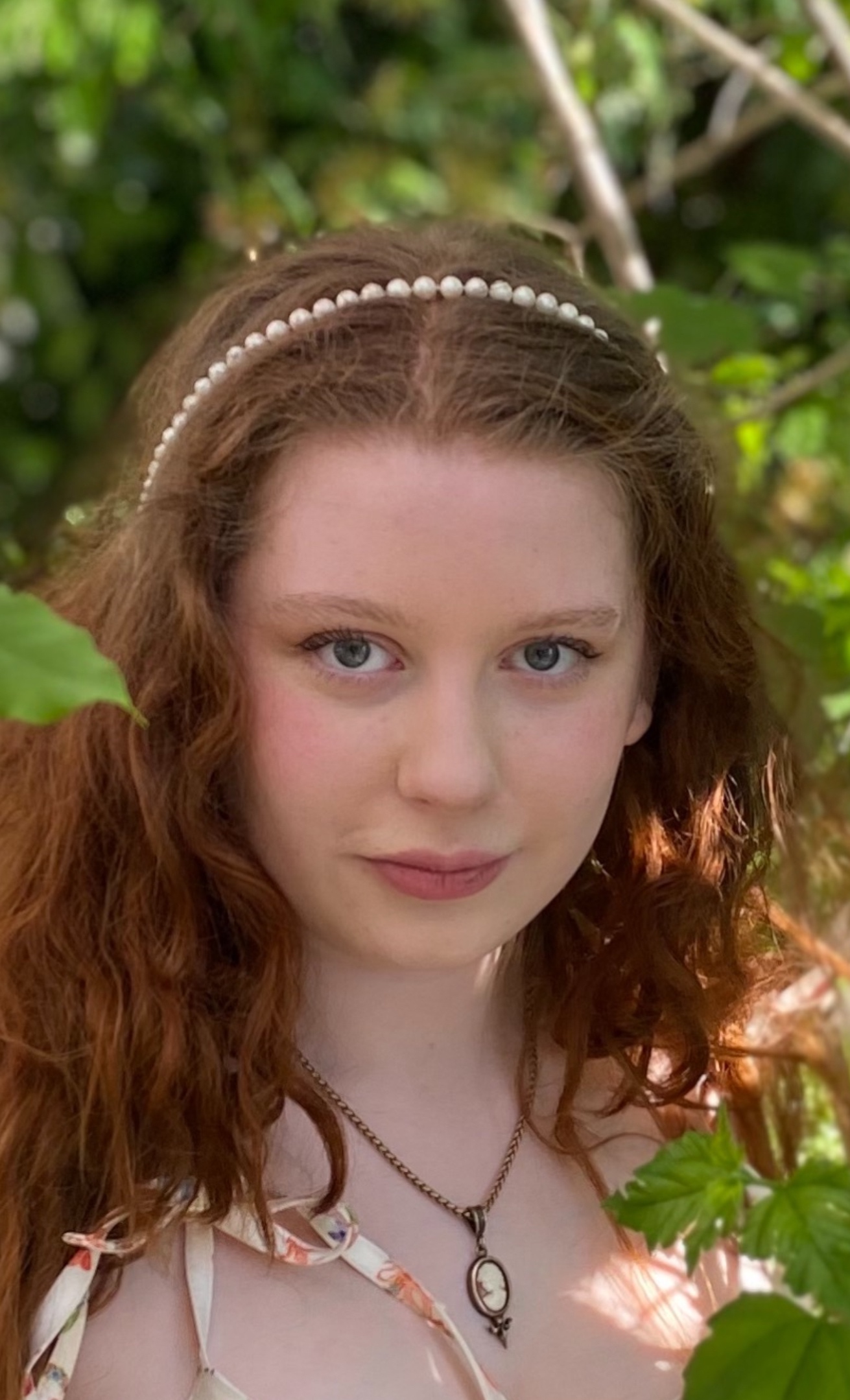When portraying female characters, film and other media have repeatedly used the “damsel on the railroad track” trope. Many are familiar with the narrative: A rough-and-tumble mustached villain ties a woman manically to train tracks as she passively squeals in horror. Yet, righteousness always prevails here — the now-traumatized lady is saved by a dashing male hero. The trope has become a stand-in for women being victimized so men can obtain savior status. But as any modern female-led psychological thriller will demonstrate, it is time for women to take hold of the controls and steer the train into a more equitable portrayal of female power.
1. Sharp Objects, HBO Max, Hulu
The 2018 miniseries is a twangy, Southern Gothic psychological thriller based on Gillian Flynn’s novel. Viewers are transported to a Missouri ghost town where the remnants of old wealth and a bygone era’s fantasy remain. The main character, Camille (Amy Adams), opposes the female ideal of the small town, a place where peppy femininity is something to be performed. Camille is introverted and refreshingly tense: She seems as if she’ll break down in tears at any given minute.
After two teenage girls are murdered, journalist Camille must travel back to her hometown, Wind Gap, to write an article. The town’s name is fitting: It is devoid of time, so eerily stagnant that even a gust of wind wouldn’t dare cross its borders. Camille recounts her childhood trauma, including her younger sister’s untimely death. She is forced to cope with her hypochondriac, attention-seeking mother (Patricia Clarkson), and the judgmental glances of old acquaintances. Her teenage sister, Amma (Eliza Scanlen), roller-skates with her friends across the dead town square, plays in her replica dollhouse of the family’s stunning Victorian mansion and secretly changes out of the “little girl’s clothes” their mother puts her in.
The “Sharp Objects” plot is an intricately woven web of nuance and folk-like horrors. Camille can either fall head-first into this web, the spiders of her past devouring her whole, or fight back with a metaphorical bug swatter. The appeal of Camille’s character betrays a misogynistic ideal: She is seemingly passive at first — she absorbs what is around her and is quietly courteous. But Camille proves a female heroine does not necessarily have to be an outwardly bold, Wonder Woman-esque dominant type, and one’s power can also prevail through subtle observation.
2. Mare of Easttown, HBO Max
After a woman is murdered in a suburban, dismal Pennsylvania town, Detective Mare Sheehan (Kate Winslet) gets on the case. Diverging from her glamorous persona in films like “Titanic,” Winslet’s characterization is gruff and unkempt. Her grown-out, brown roots trail through her otherwise blond hair. She wears wrinkled flannels and gift-shop hoodies. In other words, she is just like everyone else. Mare is as tough as nails in a male-dominated profession, with glimmers of vulnerability stemming from her son’s recent suicide.
Her character is not made powerful by making her seem “un-womanlike” or masculine; rather, she is a mother who yearns for a relationship after a divorce. Her ability to work the murder case is not a divergence from gender norms but instead simply integrated into her life. Despite Mare’s responsibilities, she is not some sort of “super-mom” who does it all without being phased. She is imperfect, ignores legal niceties at times and breaks down as she faces waves of mourning.
Most importantly, though, Mare is entirely and utterly fed up with everything. She never gains an optimistic view on life — she is just over it. Relationship issues, her son’s death, fighting for custody of her grandchild, the list of things that bother Mare goes on and on. Though interestingly, her crankiness is refreshing. She shows that a woman is not required to be a peppy go-getter to save the day.
3. Killing Eve, BBC America, Hulu
Starring Sandra Oh as Eve, “Killing Eve” is a fascinating depiction of a female-led psychological “cat and mouse” thriller. Eve, an investigator in Britain, tries to capture the merciless “hitwoman” and serial killer Villanelle (Jodie Comer). But, as the series progresses, the two women become obsessed with each other, often getting uncomfortably close while following each other’s tracks. What is powerful about Oh’s character is that, despite being in the victim’s position at times, she is never passive or weak as many female characters have been. Instead, viewers witness un-tokenized gender in this woman-versus-woman plot. The show avoids overly sexualized catfights and “feminized” submissiveness. The two women are tough because it is in their nature — Villanelle’s evil is devoid of gendered connotations, showing that wrongdoing has no gender.
This psychological thriller still embraces sex appeal, as writer Jennifer Barton argues, but not for the gaze of male co-stars. Even Villanelle, who viewers are led to despise, wears flamboyant outfits because she herself wants to — not to impress anyone else. Both protagonist and antagonist are tough, intelligent career women. Perhaps the series diverges from the familiar filmic narrative that only two types of women exist in society: old-fashioned, passive feminine, and modern, self-sufficient anti-feminine. “Killing Eve” demonstrates that women can be opposites and still equally deviate from a gender norm. Morals are not dependent on how one conforms to a societal standard — the most dangerous person in the room, for all one knows, could be wearing a frilly pink dress.
4. The Undoing, HBO Max
Note: This section contains a discussion of domestic violence and abuse
The 2020 female-led psychological crime thriller depicts aristocratic New Yorker Grace Fraser (Nicole Kidman) in a tense “whodunnit” that seized America upon its release. After a woman named Elena (Matilda De Angelis) is found brutally murdered, Grace’s husband Jonathan (Hugh Grant) becomes a prime suspect. Faced with the prospect of her husband’s infidelity with Elena and a public media storm, Grace is in a tricky situation. Alongside this, Grace is a victim of domestic violence at Jonathan’s hands. “The Undoing” works as a powerful representation of survivors — the chaos of not knowing who to believe works as a symbol for manipulative relationships.
As Melanie Hamlett explained for Harpers Bazaar, in abusive situations such as those portrayed in “The Undoing,” victims possess a mindset where they can both despise and love their abuser. Hamlett eloquently stated, “There’s also a very human instinct to protect those we love. And then, all this is made worse by the patriarchal social conditioning that reinforces this idea that women should put men’s needs above their own.” While the series revolves around solving a crime, it also focuses on Grace breaking from the shackles placed by Jonathan. One roots for her while simultaneously questioning her innocence. We are forced into the hailstorm of confusion, just as she is. But, Grace finds an unexpected power in the last episode — “undoing” Jonathan’s problematic nature for all to see.
5. Little Fires Everywhere, Hulu
The female-led psychological thriller, based on Celeste Ng’s book of the same name, demonstrates that conflict can erupt at the spark of a match. Drifting single mother Mia Warren (Kerry Washington) moves with her daughter, Pearl (Lexi Underwood), into the seemingly pristine suburban world of 1990s Shaker, Ohio. The two’s existence collides with the affluent and preppy Richardson family, whose staunch matriarch Elena Richardson (Reese Witherspoon) is overbearing to the point of unease. With pity veiled as uplifting inclusion, Elena invites Mia to housekeep for her. As the plot progresses, the title becomes more and more fitting: There genuinely are flames popping up everywhere the viewer looks, from adoption scandals and class divisions to high school drama and teen pregnancy. Everything brilliantly intertwines.
A key point regarding representation is how the show blatantly and powerfully calls out ignorant, privileged white feminism. The series offers a fascinating breakdown of racial, gender and class tensions in an explosive but carefully crafted way. Elena’s treatment of Mia and her daughter, Pearl, is degrading but portrayed as well-intentioned. In an interview with Buzzfeed, Ng says it all: “Many of us are predisposed to give the benefit of the doubt to well-intentioned white ladies. And they’re used to getting that benefit of the doubt. I hope that people react to it the way that the show wants them to, which is to be reflective about that.”
Neither Mia nor Elena is perfect; they are both far from it. Both characters have metaphorical skeletons in their closet, and some of their secrets have gone unmentioned for years. But, the show touches on an important principle: Sometimes, one’s actions are different from their intentions.
Representation on television is crucial, especially in genres so reliant on tropes that it can be hard to dig themselves out. It is time for the media industry to take their shovel, dig up all the misogynistic dirt, and make room for series such as those just mentioned — even if the plots are full of socially-telling dirt themselves.

















